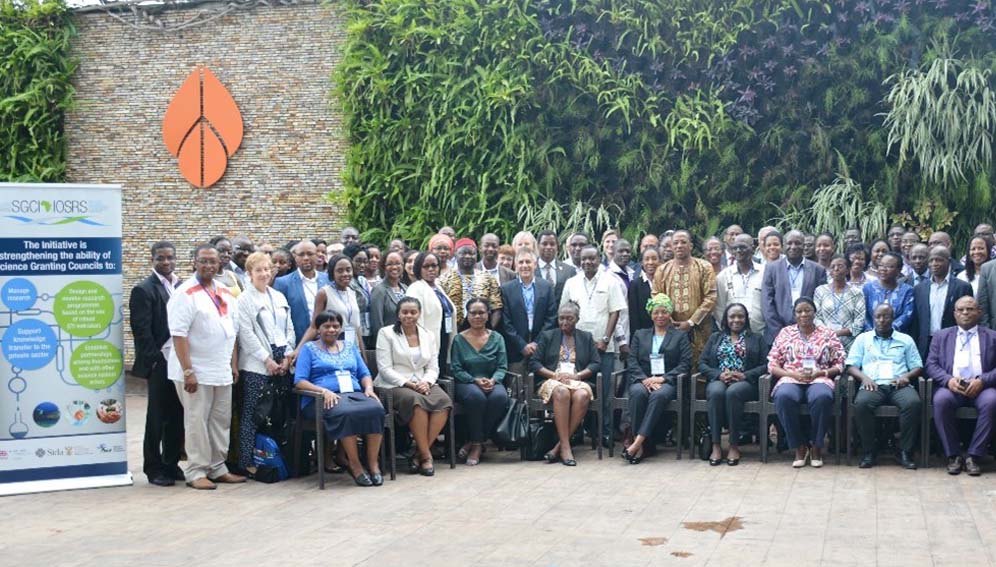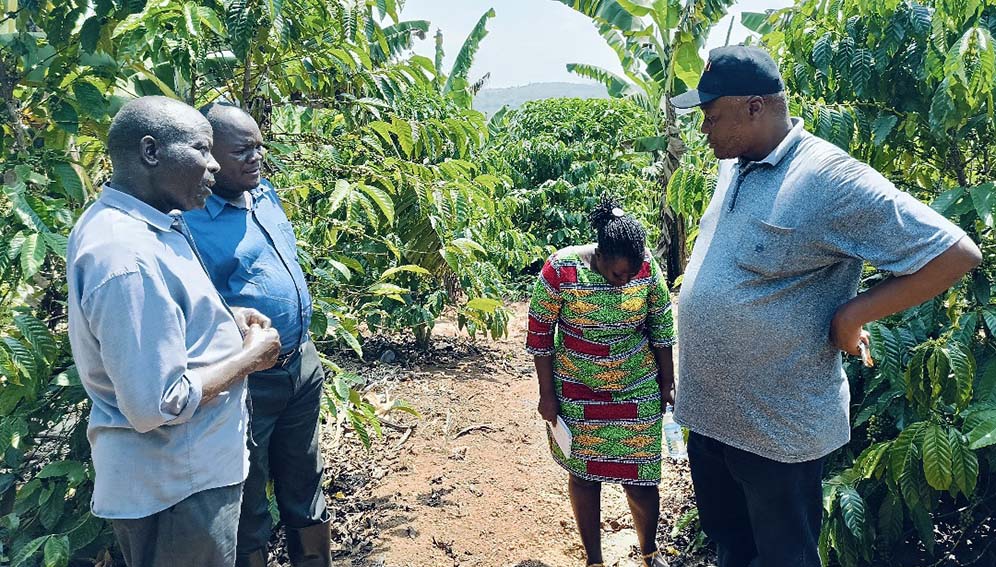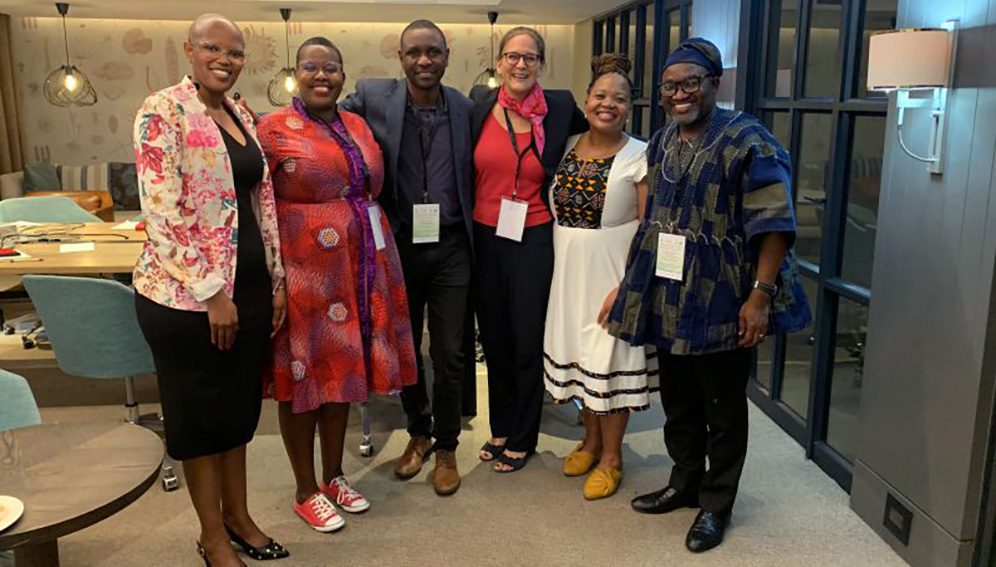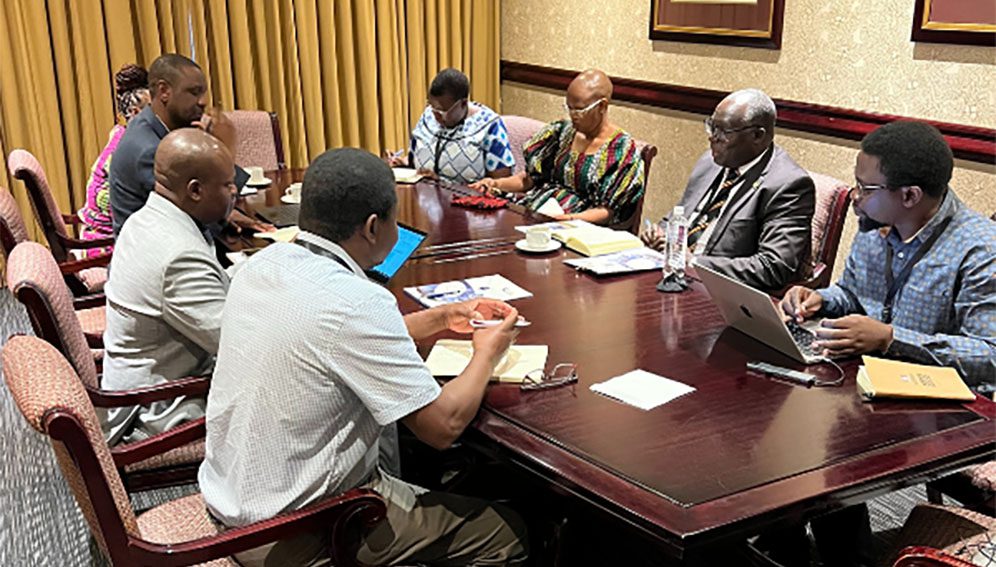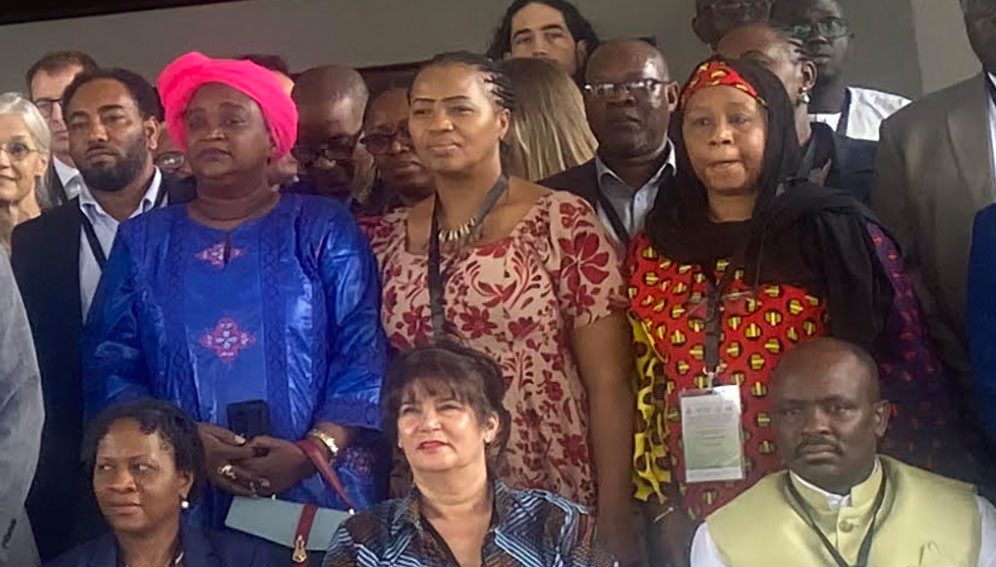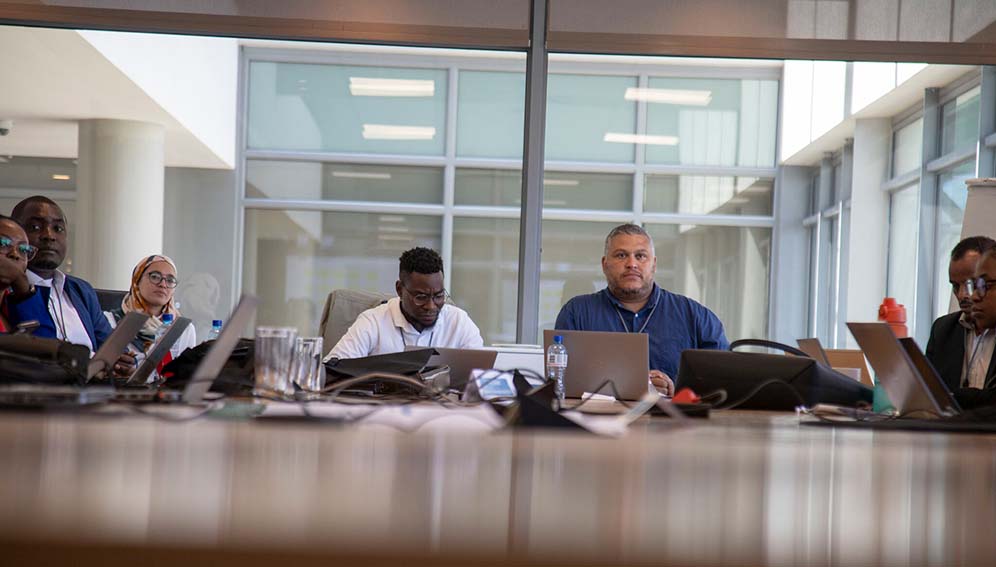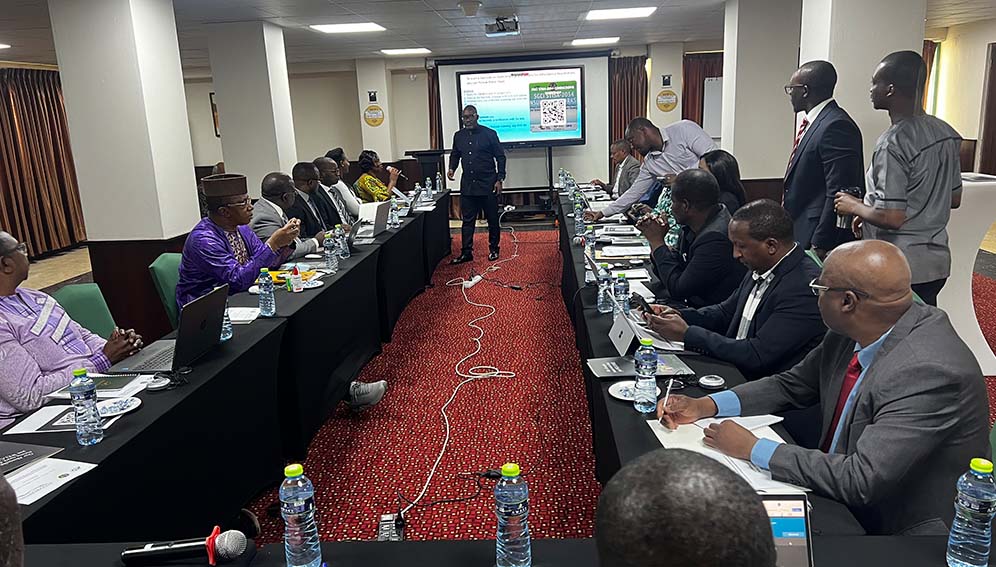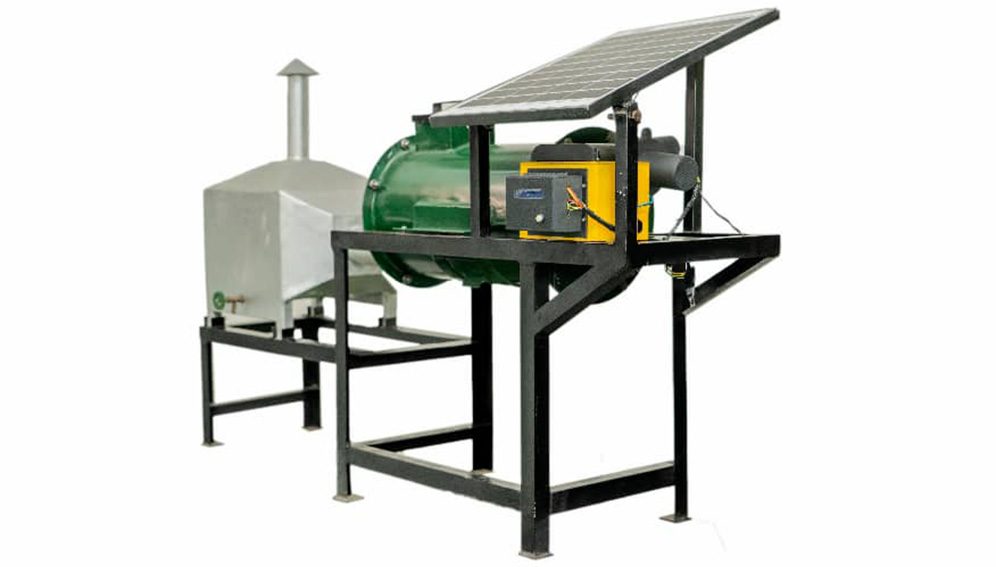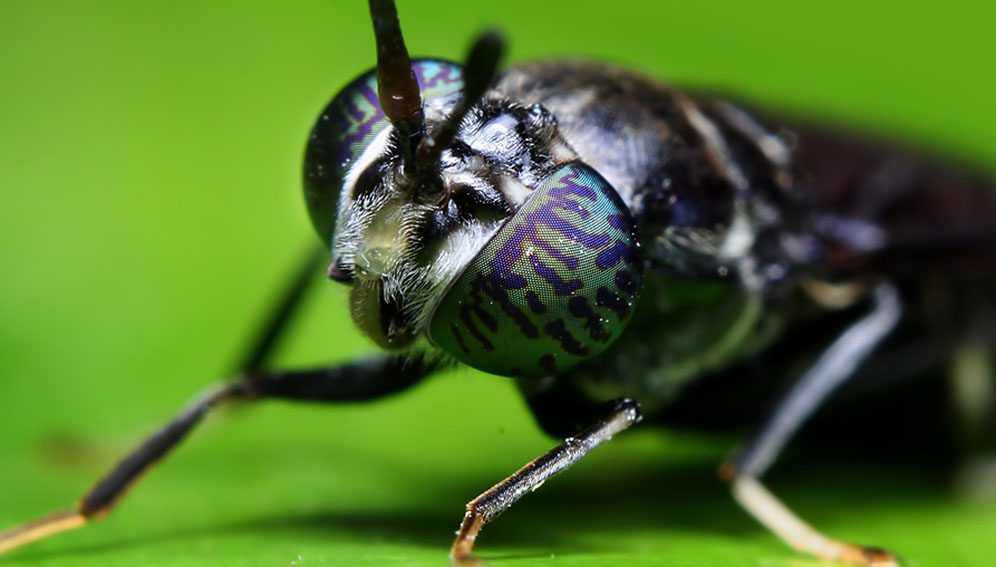Posts by Davis Weddi
SGCI funding: Researchers’ transformative stories
Science is not just about discovery, it’s about impact, and SGCI is helping to make this difference happen. The Science Granting Councils Initiative (SGCI) is enabling researchers across Africa to break down obstacles and transform ideas into life-changing solutions. From transforming agricultural practices in Namibia to developing life-saving technologies in Nigeria and enhancing baking standards…
Read MoreCollagen fertiliser is a smart move for Uganda’s coffee
[KAMPALA] Ugandan researchers have developed a method to transform the waste generated by leather production into a nutrient-rich agricultural solution for coffee farming. The innovation addresses critical challenges in Uganda’s agricultural sector, by targeting waste management and soil fertility through a scientifically advanced approach to organic fertiliser production. By turning the waste from leather processing…
Read MoreResearch in action – the Uganda and Malawi success story
In a demonstration of how research can translate into tangible economic benefits, Uganda and Malawi are yielding impressive results in their lab-to-market drive through a project helping Science Granting Councils turn scientific research into marketable products. The project led by Maurice Bolo, the executive director of the Scinnovent Centre in Nairobi, Kenya, under the Science…
Read MoreConnecting research and industry
Imagine a world where groundbreaking research seamlessly translates into everyday solutions, where researchers and businesses meet to turn bright ideas into real-world impact. This is one of the core themes of the Science Granting Councils Initiative (SGCI) – public-private partnership. Through tailored training and hands-on support, SGCI helps councils see opportunities for research commercialization and…
Read MoreEquity in science
Do you know that SGCI champions gender equity and inclusiveness in science? The Science Granting Councils Initiative (SGCI) is driving gender equity and inclusiveness in science, technology, and innovation across Africa. Through strategic collaborations, SGCI is making research environments more diverse, equitable, and inclusive. Here’s how: By fostering gender-responsive policies and research practices, SGCI is…
Read MoreStrengthening STI data for policy impact
The Centre for Science, Technology, and Innovation Indicators (CeSTII) recently hosted a high-impact workshop on strengthening the capacity of African Science Granting Councils in the use of evidence in policy and decision-making (Evi-Pol) under the Science Granting Councils Initiative. The event was held in Cape Town, South Africa. It gathered senior policymakers, data specialists, and…
Read MoreDriving Africa’s STI future
Exciting developments in African Science, Technology, and Innovation (STI) emerged from the recent gathering of African Heads of Research Councils (HORCs) in Accra, Ghana. Strengthening continental collaboration and aligning efforts with the STISA-2034 strategy was the focus of the gathering. African Centre for Technology Studies led and coordinated that assignment on behalf of the SGCI.…
Read More‘Jolly Frier’ promises healthy future for garri makers
[LAGOS] Nigerian researchers have created a hybrid gas- and solar-powered device that automates the production of the Nigerian staple garri, improving efficiency and reducing health risks for producers. Garri, a granular flour made from cassava, is usually produced using a wood burning stove. This puts those who make it – mostly women and girls –…
Read MoreFly poo boosts Malawi crop yields
[LILONGWE] As Fanny Ndhlovu and nine other farmers in her village watch their banana crop flourish, they also feel their dying farming practices rejuvenating. For years, these farmers in Mzimba District in Northern Malawi have experienced steady decline in yields. “Here, growing bananas and maize is our life but it has been hard in recent…
Read MoreSolar-powered device seeks to solve Nigeria’s water problems
[LAGOS] Researchers in Nigeria have developed a solar-powered biosensor filtration device that detects and removes killer germs in water, making it safe to drink. Nigeria faces a severe water crisis, with an estimated 70 per cent of water at the point of consumption contaminated, according to UNICEF. The UN children’s agency says 117, 000 children…
Read More
